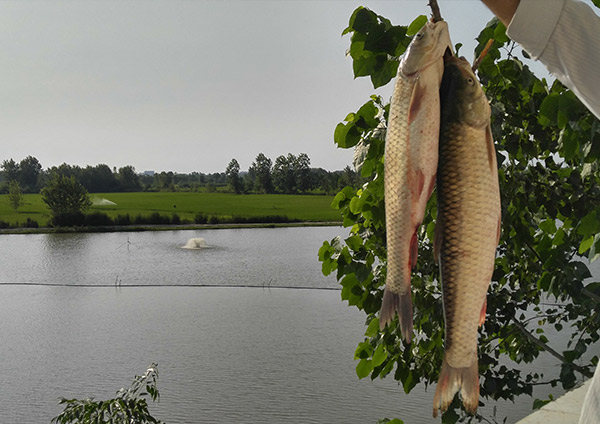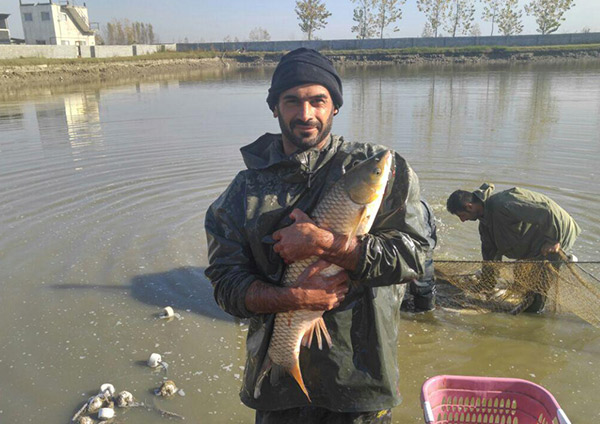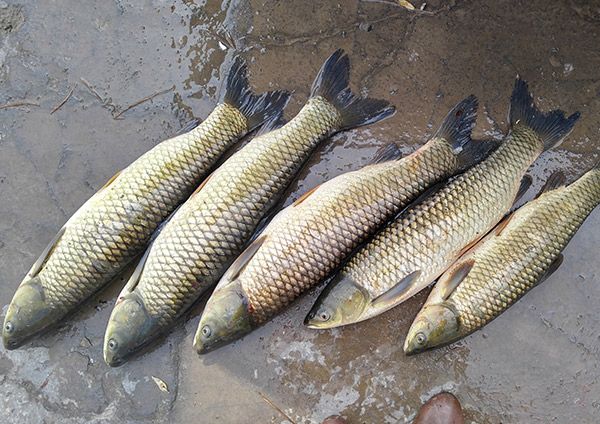fish, products, warm-water-fish
Grass Carp (White Amur)
Grass carp, scientifically named Ctenopharyngodon idella or white amur, is one of the top freshwater culturing species.
Amur grows very fast and has a maximum body weight of 35 kg in nature and has at least a 10 year of lifetime. Amur is a river fish and has a greater tendency to live in the running waters. In Iran, herbivorous carp is selected as the second cultivated species along with other species (silver, common and bighead carps).
Grass carp feeds first from animal plankton and after reaching about 3 cm in body length feeds of multi-cell organisms. This herb-eating fish is because of its choice of plant for feeding has been is a very suitable choice for multiple breeding and has been introduced in many countries for the purpose of plant control. In fact, its type of feeding makes the pond more suitable for other fish such as common carp. Amur fish have special pharyngeal teeth for crushing plants, and this is essential for herbivores to mechanically break the structure of plants in order to digest it.

Grass carp or white amur is one of the most delicious and expensive species of warm-water fish. The meat of this fish is of high quality due to the consumption of herbs such as clover, alfalfa, sorghum and soft fodder, and one of the healthiest and most favorable of the warm-water fish and from a diet perspective a nice choice since it lacks carbohydrates and has minimal fat (less than five percent). The people of Iran are very keen on eating vegetabled rice with Caspian white fish (Rutilus frisii kutum) and also with grass carp. Some fish sellers call it cultured white fish which is not a right name.

Usually, the products produced from this fish are consumed in the country and have no export. But it can be exported by processing and packaging such species and meeting the required standards.
We also produce 4 tons of this fish in the Lazir Agro-Industrial Complex annually, and while providing employment and entrepreneurship, we have fulfilled a part of our warm-water species domestic needs.




